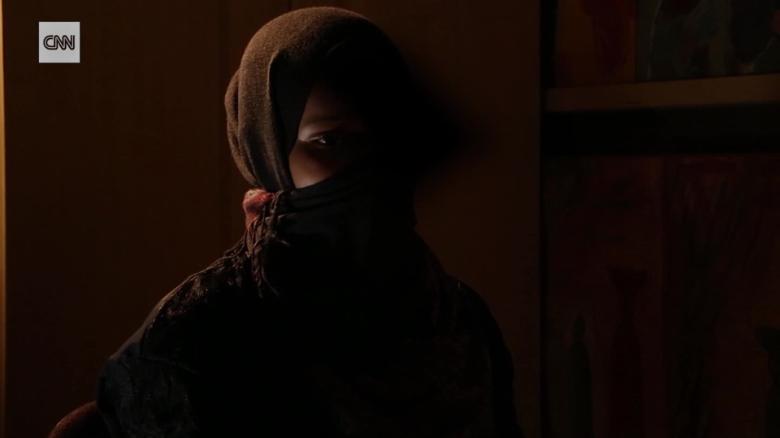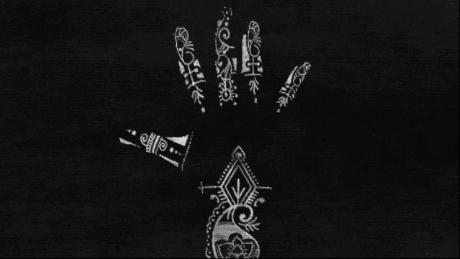The 11-year-old girl divorcing her 38-year-old husband
Updated 1216 GMT (2016 HKT) June 21, 2018
CNN is committed to covering gender inequality wherever it occurs in the world. This story is part of As Equals, a year-long series.
Khartoum, Sudan ŌĆö Amal is 11 years old and seeking a divorce.
The young Sudanese girl was in elementary school when a 38-year-old man asked for her hand in marriage.
Her father accepted the proposal, and Amal (not her real name) was immediately wed.
In Sudan, child marriage has been woven into the fabric of the country's culture, driven by tradition and poverty. More than a third of girls there are married before their 18th birthday, according to a 2017 UNICEF report, and 12% are wed before they reach 15. Under the country's 1991 Personal Status Law of Muslims, children can marry when they reach "maturity," which is only 10 years old. It's the lowest legal age of marriage in Africa.
The recent case of Sudanese teenager Noura Hussein, sentenced to death earlier this year for killing her husband as he tried to rape her, has focused attention on child marriage in Sudan. Now 19, Noura was just 15 when she was forced to marry a man more than twice her age.
Pre-teen bride Amal says she was repeatedly abused at the hands of her husband, who smoked cigarettes as he beat her.
In an interview in Khartoum, her father sitting beside her, Amal told CNN that her husband had another wife who lived in the same house with them.
After the abuse, Amal said that she went to her father for help, but he kept sending her back. Eventually she escaped with the aid of her husband's first wife.
"He treated me horribly," Amal said of her husband. "Then when the beatings became every day, I went to the police station."
A doctor who evaluated Amal's injuries at the station found evidence that she'd been tied up and assaulted.
Though he had heard her story before, Amal's father wept while his daughter talked to us.
"Twice, she came to my home, twice, and was terrified and frightened. I sent her back," he told CNN. "I am regretful."
Amal's father, who works as a tinsmith laborer in the street, is raising six daughters on his own. When he described why he married Amal off -- despite her young age -- he cited tradition and honor.
"When I let him marry my daughter, it was on trust, on the basis that he would look after her, let her continue with her education and honor her as agreed," he said. "But I found that this was not happening. It was all beating, humiliation and provocation."
Many Sudanese parents marry off their daughters in hopes of avoiding poverty, violence or family shame. Unmarried women are often stigmatized as agir, "infertile," or bayra, "not demanded for marriage." But, in reality, child brides are more likely to face sexual, physical and psychological violence, according to UNICEF.
"I didn't know that getting married at a young age could have such consequences," Amal's father added.
Despite what happened to Amal, he says it won't stop him from marrying off his younger daughters.
In December 2015, the Sudanese government joined the African Union campaign to end child marriage on the continent. One year later, Sudan received recommendations from the United Nations with the same goal.
In the intervening years, Sudan's National Council for Child Welfare (NCCW) formulated a strategy for abandoning the practice, but the reform sparked counter-mobilization by conservative religious groups in the country and little has been done to implement it.
The SEEMA Center, a nongovernmental organization working with victims and survivors of gender-based violence in Khartoum, is among civil-society groups working to change that.
Nahid Jabralla, director of SEEMA, has been campaigning in support of Amal, Noura and other young women and girls with stories like theirs.
"Many of the cases brought to SEEMA Center are related to forced marriage, child marriage or domestic violence, including marital rape and cases to do with injustice," Jabralla told CNN. "However, what is brought to SEEMA Center is a very small portion of the cases of the violations that women and children are subjected to in the Sudan."
The Sudanese government has not responded to CNN's requests for comment on child marriage in the country, or Noura's case.
While official statistics show that 34% of girls in Sudan get married before they reach 18, this varies significantly across the country. In Sudan's East Darfur State, for example, 57% of women marry before the age of 18, according to a 2014 UNICEF health survey.
Sudan is full of Nouras and few have seen justice, Jabralla says.
Despite these odds, young girls like Amal are still fighting for a different future.
The 11-year-old, who likes to play with dolls and has filled countless notebooks with poetry, is adamant on having her divorce finalized.
As soon as it is, she wants to get back to school, to be reunited with her friends.
Asked what advice she would give other young girls fighting early marriage, Amal looked down at her hands.
"Be brave," she said.
"I wish I was braver."






